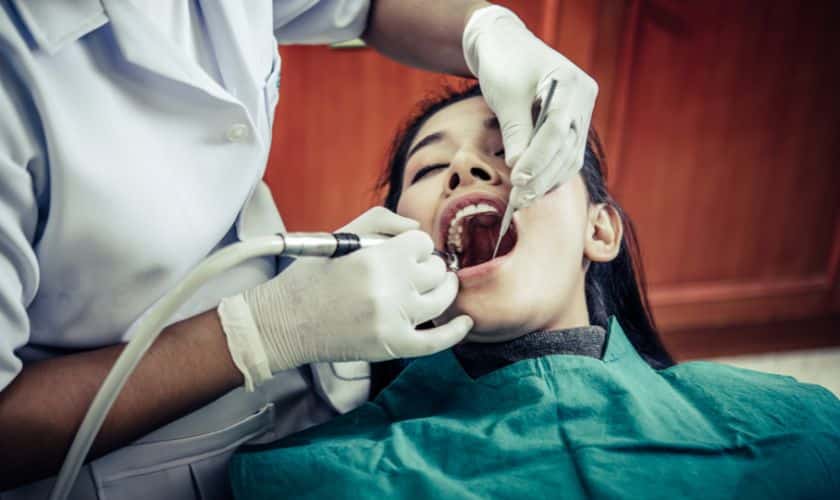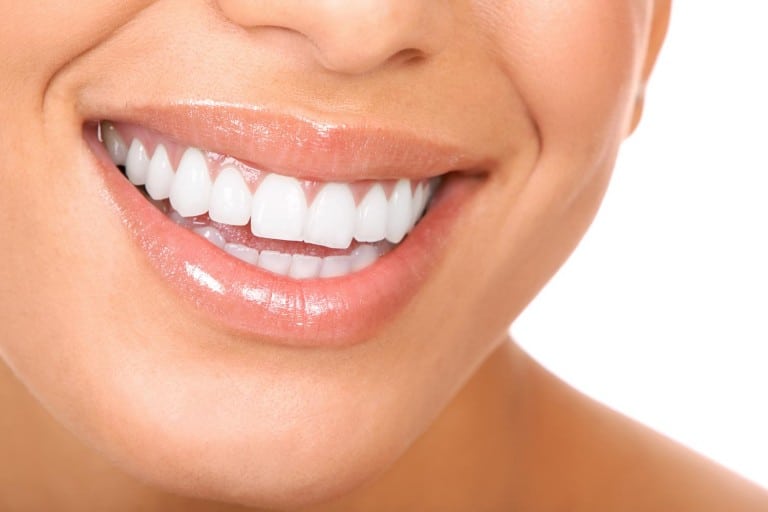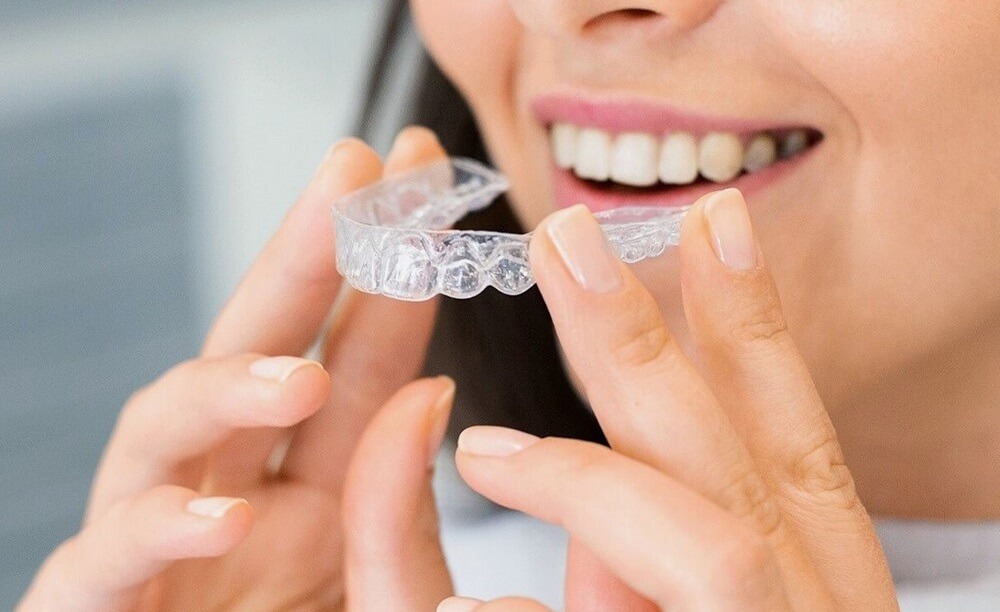
The Benefits of Choosing a Sedation Dentist for Your Next Procedure
Are you someone who dreads going to the dentist? Do you get anxious at the thought of a dental procedure? If yes, then sedation dentistry might just be what you need. Sedation dentistry involves using medication to help patients relax during dental procedures. It can help alleviate anxiety and fear associated with visiting the dentist and make your next visit much more comfortable. In this blog post, we’ll explore everything you need to know about sedation dentistry – from its benefits to how to find a sedation dentist near you. So sit back, relax, and let’s dive into the world of sedation dentistry!
Who is a Sedation Dentist?
A sedation dentist is a dental professional who specializes in providing sedative medication to patients before and during dental procedures. These medications are designed to help patients relax, feel calm, and be more comfortable while undergoing treatment.
Sedation dentistry can benefit people with different levels of anxiety or fear when it comes to visiting the dentist. Some individuals may experience mild discomfort or nervousness, while others may have severe phobias that prevent them from seeking necessary dental care. Regardless of your level of anxiety, sedation dentistry can help you receive the care you need without feeling apprehensive about it.
Sedation dentists use various types of medication for their patients depending on their individual needs. The type and dosage will depend on several factors including medical history, age, weight, and the extent of the procedure being performed.
The Different Types of Sedation Dentistry
When it comes to sedation dentistry, there are several different types of sedation that can be used depending on the patient’s needs and the procedure being performed. Here are some of the most common types:
1. Nitrous oxide: Also known as laughing gas, this type of sedation is inhaled through a mask placed over the nose. It produces a relaxed and euphoric feeling but wears off quickly once the mask is removed.
2. Oral sedation: This involves taking a pill before your appointment to help you relax. The level of sedation can range from minimal to moderate.
3. IV sedation: This type of sedation is administered intravenously and provides a deeper level of relaxation than oral or nitrous oxide.
4. General anesthesia: This is typically reserved for more complex procedures or patients with severe anxiety issues. It involves complete unconsciousness during the procedure.
It’s important to discuss your options with your dentist and determine which type of sedation will best suit your needs based on factors such as medical history, anxiety levels, and length/type of procedure being performed.
Benefits of Sedation Dentistry
Sedation dentistry is an excellent option for patients who experience anxiety or fear while undergoing dental procedures. Here are nine benefits of choosing a sedation dentist for your next procedure:
1. Reduced Anxiety: Sedation dentistry can help reduce anxiety and promote relaxation during dental procedures.
2. Pain-Free Experience: With sedation, you’ll have little to no memory of the procedure, ensuring that it’s pain-free.
3. Time-Saving: Sedation allows the dentist to work more efficiently without worrying about patient discomfort or movement, which saves time for both parties involved.
4. No Needles Required: For some types of sedation, there’s no need for needles since medication can be administered through oral pills or inhalers.
5. Increased Comfort: Patients often report feeling more comfortable during procedures when under sedation due to decreased sensitivity in their mouths.
6. Improved Safety Measures: When patients are relaxed and still during a dental procedure, safety measures such as equipment placement become easier to manage with less risk of injury.
7. Better Dental Outcomes: Sedated patients tend to be easier to treat due to increased cooperation and less movement in the chair resulting in better outcomes overall.
8. Memory Loss During Procedure: One benefit is not remembering any part of the appointment which many people find comforting if they struggle with fears about seeing a dentist
9. Customizable Treatment Options: There are different types of sedatives available based on each patient’s unique needs so treatment options are customizable!
How to Find a Sedation Dentist?
Finding a sedation dentist may seem like a daunting task, but it doesn’t have to be. First, start by asking your regular dentist if they offer sedation dentistry or if they can recommend someone who does. Another option is to search online for “sedation dentists” in your area.
Once you have a list of potential sedation dentists, take the time to research each one. Look for reviews on their website and other third-party review sites such as Yelp or Google Reviews. These can provide valuable insights into the experiences of other patients.
It’s also important to consider the type of sedation offered by each dentist and whether it aligns with your needs and preferences. Some dentists only offer mild forms of sedation while others may offer deeper levels of sedation that require more monitoring.
Don’t be afraid to schedule consultations with multiple dentists before making a decision. This will give you the opportunity to meet with them in person, ask questions about their experience and qualifications, and get a feel for their overall approach to patient care.
What to Expect During Your Appointment?
When you visit a sedation dentist for your next dental procedure, it’s natural to feel apprehensive about what to expect during your appointment. Rest assured that the entire process is designed to make you as comfortable and relaxed as possible.
Firstly, your sedation dentist will conduct an initial consultation before any treatment begins. During this consultation, they’ll review your medical history and determine which type of sedation dentistry is best suited for you.
On the day of your appointment, it’s recommended that you have someone accompany you who can drive you home afterward. Once at the office, your dentist will administer the appropriate level of medication based on their previous assessment.
Depending on the type of sedation used, some patients may become drowsy or even fall asleep during their procedure. However, it’s important to note that while under sedation dentistry care, patients are still able to communicate with their dentist if necessary.
After the procedure is complete and once all medications have worn off sufficiently enough for safe discharge from our practice; patients should be carefully monitored by loved ones until they’ve fully recovered from their experience so they can then go back into daily life feeling much more confident with a healthy smile!
Conclusion
Choosing a sedation dentist for your next procedure can be extremely beneficial. Not only does it alleviate anxiety and fear, but it also allows for more complex procedures to be completed in one sitting. Sedation dentistry offers various types of sedation options such as nitrous oxide, oral sedatives, and IV sedation that can cater to different levels of anxiety.
Additionally, opting for a sedation dentist means you will experience very minimal discomfort or pain during the procedure. This is because the dentist will have complete control over how much anesthesia you receive throughout the appointment.
Finding a qualified and experienced dental professional who specializes in sedation dentistry is crucial before undergoing any procedure. It’s important to do extensive research beforehand by checking reviews and asking for referrals from friends or family members who have had similar experiences.
Taking advantage of sedation dentistry can help those with dental phobia feel at ease during their appointments while still receiving necessary treatment. Remember to always discuss any concerns or questions with your dentist prior to any procedures being performed.
FAQ
Sedation dentistry can make a significant difference in your dental experience. With the variety of sedation options available, you can choose an approach that fits your individual needs and preferences.
If you are still unsure about whether sedation dentistry is right for you, here are some answers to frequently asked questions:
Is sedation dentistry safe?
Yes, when administered by a trained professional, it is very safe.
Will I be unconscious during my procedure?
Not necessarily. While some forms of sedation may cause drowsiness or partial unconsciousness, others simply help to reduce anxiety while keeping you alert and responsive.
Can children receive sedation dentistry?
Yes, but only with appropriate precautions and supervision by qualified professionals.
How long does the effect of sedatives last?
This depends on the type and dosage of the medication used for your procedure.
Are there any side effects associated with sedation dentistry?
Some minor side effects like headaches or nausea may occur after treatment but these tend to resolve quickly.





